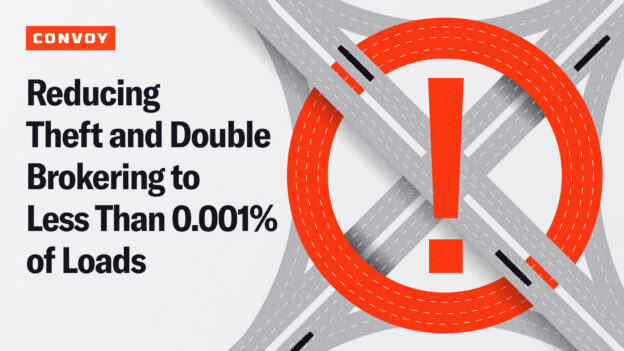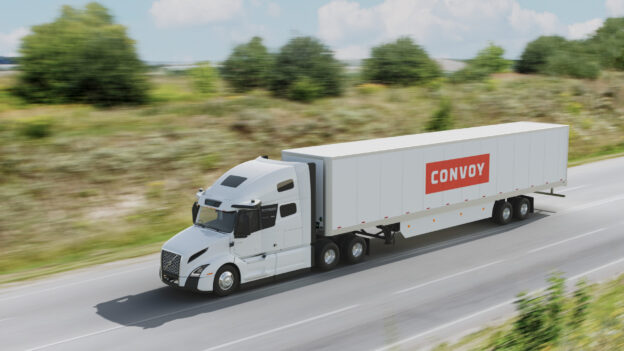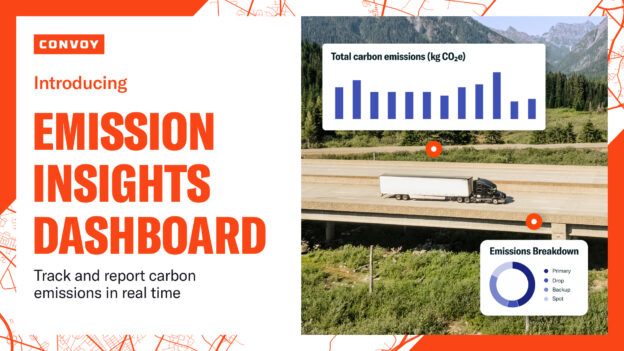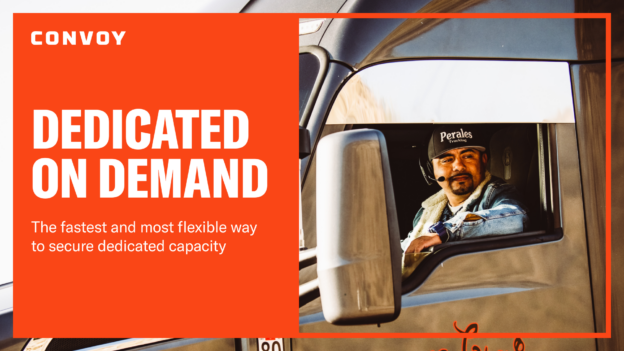General Insulation Moves to Reduce Supply Chain Carbon Emissions
Shippers, Sustainability • Published on November 18, 2021
At Convoy, many of our shippers are developing a net-zero supply chain and overall business operation. Our own mission to ‘transport the world with endless capacity and zero-waste’ reflects similar goals and has informed our decision to join The Climate Pledge and have carbon emissions transparency.
The value of reaching net-zero is manyfold. Companies that are able to develop sustainable business practices will have a competitive advantage over their counterparts as customers demand green alternatives.
General Insulation, an insulation distributor that stocks and fabricates a wide variety of industrial, commercial and fire-stopping products for the construction market, shares this forward-thinking approach to sustainability. Ian Allison, General Insulation’s Transportation and Supply Chain Manager talked with Ashley (General Insulation’s Account Manager) and I about the value his company sees in reaching net-zero emissions sooner rather than later.
Alex: Hey Ian, thank you for joining us! We have some questions prepared and are looking forward to learning about how General Insulation is thinking about sustainability and the initiatives your team is engaged with.
To kick things off can you tell us about the responsibilities of your current role?
Ian: Sure thing. At General Insulation I am responsible for implementing new processes and developing or, in some cases, purchasing technology to create a more efficient transportation network. Ultimately, this provides cost avoidance throughout our supply chain and leads to a more reliable network for our manufacturers and distributors across the country.
Alex: Awesome. Ian, throughout our conversations I have been impressed with your knowledge of General Insulation’s operations and the transportation space at large. Can you tell us about your career in supply chain and what you have seen as the biggest evolution in this sector over the years?
Ian: My career in supply chain began 15 years ago at North America’s largest 3pl – C.H. Robinson. While working as a Sales Executive for CHR, I had the opportunity to study, and help improve, a wide variety of supply chains. This experience gave me insight into how best practices from differing supply chains can be shared within an organization. This process increases overall productivity and leads to a culture of innovation within an organization.
To answer the second part of your question, the largest transformation I’ve seen over the years is the widespread adoption of web-based technologies, starting with simple software products and evolving more recently into the interconnected IOT space of today. It’s pretty wild to think that not long ago shippers and carriers were exchanging documents via fax.
Alex: Speaking of innovation within organizations, I know you have a reputation for being an innovator. Can you tell us why you think innovation is important?
Ian: Well, I think it’s fairly well understood that if organizations don’t embrace change, the risk of disruption increases over time. Organizations and teams within them need to have the forethought to explore future outcomes. It is important to understand the tradeoffs associated with new technologies and digital strategies. In my experience with supply chains, this pursuit often is the gateway to cost and process improvements.
Alex: How has Convoy helped you to improve your supply chain and what cost or process improvements has General Insulation realized through our partnership?
Ian: GIC had a few carrier partners, but we were missing a way to easily measure the competitiveness of their rates. At our branches, employees had to email or call carriers for rates. It was an inefficient use of their time, and unreliable as well. By partnering with Convoy we were able to easily introduce competition within our truckload supply chain. We could compare rates and get a high-level view. At the end of the day, we’re seeing cost-avoidance and process efficiencies—from digital rate requests, to rapid load tendering and BOL creation.
Alex: Ashley, is there anything you have worked with Ian and his team on that would be worth adding here?
Ashley: With the market volatility we’re seeing heading into this holiday season, shippers are having to rely on the spot market more than ever before. It can be challenging to get a truck and far too easy to overpay. General Insulation is a great example of a shipper that jumped in with all hands on deck (they have 20+ active users!), which is a true testament to how easy Convoy’s online platform is to use and implement for larger teams.
Alex: Thanks for all the background information! Keeping in mind everything we’ve just learned, Ian, I’m curious to hear in your words how sustainability fits into General Insulation’s business model?
Ian: Well, being ethical is core to our mission at GIC—we’re ethical in every aspect of our business operations. Part of that means we embrace our role as stewards of the environment. When it comes to emerging trends and thinking long-term about our company strategy, running a net-zero supply chain makes a difference. Some of our customers have sustainability goals, and our adoption of sustainable practices has set us apart from competitors. More and more I think this is going to be a differentiator.
Alex: Ian, in closing I’m curious to hear your perspective on what trend(s) you think all supply chain leaders should pay attention to this year?
Ian: Blockchain has the ability to transform the transportation and supply chain industry through secure communication and transparency between partners—up and downstream. Gaps in data disappear and decisions concerning purchasing, logistics and customer management can be made holistically. Widespread adoption of blockchain in the supply chain space is probably years away, but organizations should begin to understand the steps needed to evolve to embrace that solution.
Alex: That wraps up all of our questions for today! Ian, I want to say a sincere thank you for taking the time to share your experience with us.



